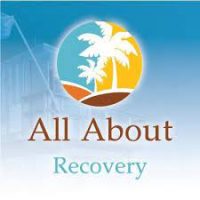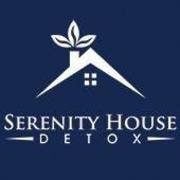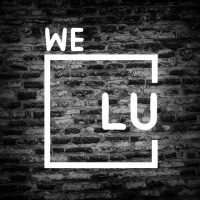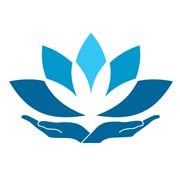All About Recovery
Drug Rehab Center in Royal Palm Beach, Florida
All About Recovery provides comprehensive addiction treatment and recovery services, including inpatient and outpatient care, dual diagnosis treatment, intensive outpatient programs and sober living/half-way houses, to individuals looking to get sober.
About This Florida Facility
All About Recovery is an accredited drug treatment center located in Royal Palm Beach, Florida. They have received certification from JCAHO (Joint Commission on Accreditation of Healthcare Organizations), a prestigious accreditation that ensures high-quality standards of care. With a facility that houses 25 beds, All About Recovery offers a range of services to individuals suffering from alcoholism, opioid addiction, and dual diagnosis. Their treatment options include inpatient, outpatient, intensive outpatient, and aftercare support. Additionally, they provide dual-diagnosis treatment for individuals with co-occurring mental health and substance abuse disorders. All About Recovery accepts private health insurance, making their services accessible to those seeking professional help in overcoming addiction.
All About Recovery offers a comprehensive array of services to help individuals struggling with addiction and substance abuse. Their inpatient program provides a structured and supportive environment for individuals who require intensive treatment and round-the-clock care. On the other hand, their outpatient program allows individuals to attend therapy sessions and receive treatment while still maintaining their daily routines and responsibilities. For those who require a higher level of care, All About Recovery offers intensive outpatient services, providing more frequent and intensive therapy sessions. Additionally, they provide aftercare support to help individuals transition from treatment back into their everyday lives. Their dual-diagnosis treatment is designed to address both substance abuse and underlying mental health issues, ensuring a holistic approach to recovery.
Genders
Ages
Modality
Additional
Accreditations

JCAHO
Conditions and Issues Treated
Many people who struggle with opioid addiction need to attend specific programs like methadone , Suboxone or Vivitrol clinics.
These types of programs will provide the patient with legal, prescription medications that can help them overcome their cravings for illegal opioids like heroin or fentanyl . If the patient has a chronic condition like Hepatitis C, they must undergo treatment before they can begin taking these medications.
Dual Diagnosis refers to someone who is both dealing with addiction and another mental health issue.
There are different kinds of Dual Diagnosis: A person who simultaneously experiences both a mental illness and an addiction disorder. Or, a person who experiences one or more coexisting (simultaneous) mental health conditions in addition to a primary substance use disorder.
Some conditions that commonly co-occur with addiction include:
- Personality Disorders (Borderline, Narcissistic)
- Mood Disorders (Bipolar Disorder, Depression, Anxiety Disorder)
- PTSD (Post Traumatic Stress Disorder), OCD (Obsessive Compulsive Disorder), ADHD (Attention Deficit Hyperactivity Disorder)
- Schizophrenia, Psychosis, Hallucinations, Delusions
Levels of Care Offered at All About Recovery
This center offers a variety of custom treatment tailored to individual recovery. Currently available are Aftercare Support, Dual-Diagnosis, Inpatient, Intensive Outpatient, Intervention, Outpatient, Sober-Living / Half-Way, with additional therapies available as listed below.
Individuals who are suffering from severe addiction or have a high risk for dangerous health concerns are often recommended to receive inpatient treatment.
Choosing to enter an inpatient treatment program is beneficial for people who are suffering from severe addiction, or who have a high risk for dangerous health concerns.
Inpatient treatment is beneficial for:
- People who have a history of severe withdrawal.
- People who have attempted to overcome addiction on their own without success.
- People who have a history of relapse, or have recently relapsed.
- People at risk for drug overdose or withdrawal-related complications.
- People with medical conditions that are worsened by drug or alcohol use.
Outpatient addiction treatment is beneficial for people who are able to function well in their day-to-day lives. It is recommended for people who are not yet ready to end their relationships with friends or family members who might be encouraging drug and alcohol use.
Intensive outpatient treatment is beneficial for:
- People who are able to attend treatment more than 3 times per week.
- People who do not meet the criteria for inpatient treatment.
- People who are able to contribute to their own recovery outside of the treatment center.
- People who are motivated towards recovery.
- People who are able to overcome addiction on their own without the need for higher levels of care.
Outpatient treatment programs provide drug and alcohol addiction treatment through individual sessions with a counselor, group therapy, 12-step meetings, and other activities to help individuals gain sober living skills. Most programs are designed for those individuals who have completed a medically supervised detoxification program and provide opportunities for clients to begin the process of early recovery.
Outpatient programs also offer a level of medical support as needed and psychological backing through therapy. Clients are encouraged to live at home, though there may be some flexibility regarding this requirement based on the circumstances and needs of each patient.
Outpatient treatment is perhaps the most common type of dual diagnosis program available. It does not pose a significant financial burden on patients. However, it is essential to note that outpatient treatment does not provide the support and supervision given in residential programs. Some addicts may need this level of support to maintain their sobriety.
Sober Living Home (SLH) is a term used to describe houses where people recovering from addiction can stay. The goal of these places is to provide immediate support and protection that the addict needs and force them to live a life free from substance abuse.
SLH’s typically allow the addict to live there for 30, 60, or 90 days. This is intended to enable the addict time to develop a foundation of “sobriety,”; allowing them to adjust to living without the substance while building new life skills. During this time, addicts also typically attend regular addiction, education classes.
Intervention services are often the last resort for addicts. An intervention begins when family or friends gather to discuss how addiction has harmed their loved one’s life and why treatment is required to help them move forward into a healthy future. The discussion includes information on various treatments in case your loved ones agree that this is necessary at some point during the conversation.
People who have completed a rehab program often need continued support from the addiction treatment team in order to remain abstinent from drugs and alcohol. Aftercare can be beneficial for personal, social, and emotional growth.
Common aftercare options include:
- Individual Therapy – this type of addiction counseling is available on a one-on-one basis. This can be beneficial for people with a high degree of emotional turmoil and a strong desire to overcome addiction.
- Group Therapy – this type of addiction counseling is available in a group setting. This type of treatment can be beneficial for people who are unable to attend regular therapy appointments due to other responsibilities.
- Family Therapy – this type of addiction counseling is available to the family members of addicts. This can be beneficial for people who are unable to fully comprehend what their loved ones are experiencing due to addiction.
Therapies & Programs
Therapy sessions focused on the individual addict can provide much-needed guidance as they work toward overcoming their addiction. These types of sessions typically involve guidance from a therapist, who will help addicts identify and process their feelings and cravings.
During these sessions, addicts may develop plans for coping with the triggers that typically lead to relapse and learn how to avoid those triggers during their recovery process.
The main goal of family therapy for drug addiction is to create an environment where communication can occur without judgment, hostility, or blame that often occurs within a family.
Family therapy is a type of group problem-solving that aims to improve communication and relationships between the patient, their family, and sometimes friends. The therapist is with the family as they learn to communicate with each other differently, especially with the addict when s/he is using.
The family can learn to reduce their enabling behavior or rally together and support each other during tough times. The patient also learns how to deal with their addiction and maintain sobriety while interacting with the family.
Different types of addiction treatment services are available. Within this article, group therapy is of interest due to its high success rate compared to individual therapy. Group therapy settings are beneficial because they allow recovering addicts to build a strong support network.
Benefits of group therapy are:
- Reduces feelings of isolation
- Immediate access to social support in the form of fellow addicts in recovery
- Lowers risk of relapse
- Increases rate of sobriety
- Builds coping skills that can be applied to everyday life
Dialectical Behavior Therapy is a cognitive-behavioral therapy that helps addicts balance their thoughts and emotions to change their behavior. It was designed for those vulnerable to self-harm and suicidal thoughts and aims to help patients understand the connection between their feelings, emotions, and behaviors. It is effective for those whose addictions and behaviors stem from severe mental health issues.
Payment Options Accepted
For specific insurance or payment methods please contact us.
Is your insurance accepted?
Ask an expert, call (888) 674-0062
Additional Details
Specifics, location, and helpful extra information.
Royal Palm Beach, Florida 33411 Phone Number(888) 712-8480 Meta DetailsUpdated November 25, 2023
Staff Verified
Patient Reviews
There are no reviews yet. Be the first one to write one.
Royal Palm Beach, Florida Addiction Information
Florida is one of the nation's epicenters for substance abuse and drug-related overdoses. In 2014, around 410,000 Florida residents were addicted to drugs and alcohol. Over the last 10 years, 12% of all deaths in the state were attributed to substance abuse. Treatment admissions for alcohol reached 24,329 patients in 2016, and 2.5% of Florida high school students admitted to using crack cocaine.
Royal Palm Beach is located in Palm Beach County, which has a population of over 1.4 million people. The county ranks first in the state for the number of drug-related arrests and second for the number of overdose deaths. In 2017, there were a total of 537 drug-related arrests in the county. The most commonly abused drugs include marijuana, cocaine, prescription drugs, and heroin.
Treatment in Nearby Cities
- Saint Cloud, FL (124.7 mi.)
- Perrine, FL (76.9 mi.)
- Madeira Beach, FL (174.9 mi.)
- Citra, FL (219.5 mi.)
- De Bary, FL (164.1 mi.)
Centers near All About Recovery
The facility name, logo and brand are the property and registered trademarks of All About Recovery, and are being used for identification and informational purposes only. Use of these names, logos and brands shall not imply endorsement. RehabNow.org is not affiliated with or sponsored by All About Recovery.










